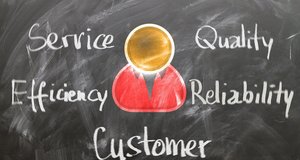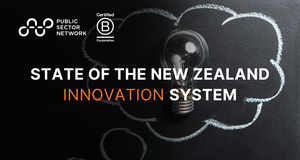Tell us about the journey to your current role and what it this role entails?
I started my work life as an engineer (apprentice toolmaker), but in my 20s I took a career break to go to university. I studied History & Social Anthropology, therefore getting a good grounding in understanding human systems. As a post-grad retrained as an Information Manager, to get a good grounding in understanding information and data systems. Ive since worked in digital archives, content management systems design and implementation, and in (meta)data modelling and machine learning across the heritage, financial, engineering and central government sectors. Ive worked as a practitioner in the National Museum of Wales, Archives NZ, and a consultant, and have also undertaken senior management roles at IRD, Transpower and DIA to develop Information Management and Business Intelligence strategies to drive digital transformation. . In my professional spare time I got interested in standards development, after taking the All-of-Govt standards I developed to support the roll-out of the NZ Public Records Act through the ISO process to be published as international standards. Ive been on ISO/TC46 and related AS/NZS standards committees developing a number of technical standards. My most recent standard was the NZ Govt Digital Service design Standard, and Im currently working at NZTA to develop a new industry standard, the Asset Management Data Standard, and the supporting data models, technical specifications and export schema. Bringing a deep knowledge of human systems, and information systems into the design of technology systems is what I am passionate about. Better services for people, supported by technological innovation is my professional goal.Can you describe a project you are working on or recently completed? What challenges did you face along the way and how were they overcome?
The challenge of taking the focus of government service delivery from the delivery teams to being human-centred to user has been an ongoing and perennial challenge through all my career. The Digital Service Design Standard developed for the Govt Chief Digital Officer, was both a response to this challenge and a solution to achieve meaningful change. We worked with colleagues in the UK, Canada and Australia, to learn the lesson of digital innovation approaches they had pioneered to lead a best of breed model to meet the specific challenges for the NZ context.What did you learn from this project? What did it achieve?
The Digital Service Design Standard has been recognised as the top Governmnet Digital Standard internationally by the US & Europe Public Sector Think Tank, Apolitical, and is now being assessed for mandatory implementation in NZ, as part of the Open Govt Partnership model.What excites you most about the future?
Finding new ways to bring my anthropological knowledge of human systems, and technical expertise in designing information systems to drive innovation (particularly AI and Machine Learning) into the design of human-centred technology systems.If you could give one piece of advice to someone looking to further their career in government, what would it be?
Dont let your passion and ethics be diluted by the bureaucracy and structural barriers you will encounter.Where do you look to for further education? E.g. articles, podcasts, news sources, online courses, university etc.?
Twitter is great, but I also look to One Team Gov and other practitioner networksWhat are you most looking forward to at the event?
Sharing ideas, learning new stuff, and feeling the passion of the sector!

















